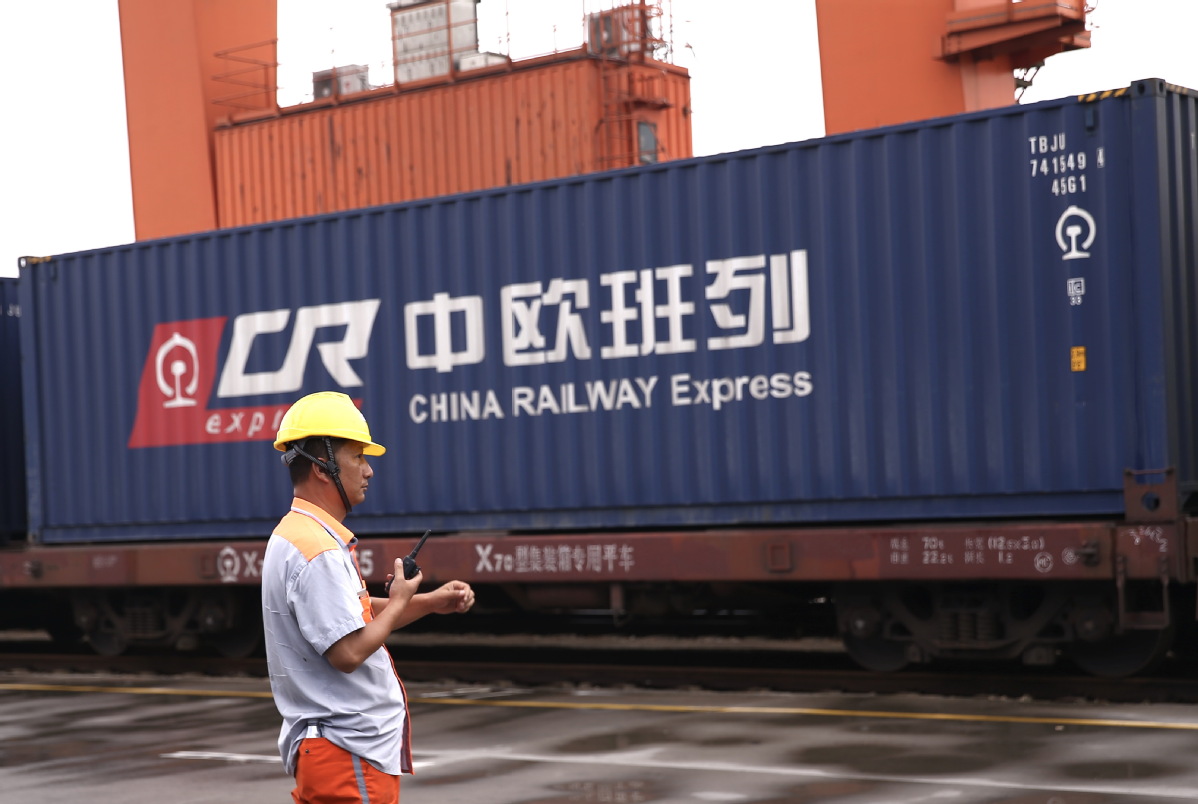Experts call for free trade alliance
2018-09-19 10:27:31
Leading Chinese think tank experts have asked Beijing and Brussels to forge an alliance to defend multilateralism and globalization as the United States escalates trade tensions with China.
"We are clearly requesting the European Union to stand together and be our allies in defending multilateralism and globalization," said Wei Jianguo, vice-chairman of the China Center for International Economic Exchanges, an influential Beijing-based think tank, in Brussels on Monday.
Wei sent the message at a seminar in Brussels hosted by Bruegel, a well-known think tank, with the theme Peril and Potential: China-US-EU Trade Relations.
Wei said his suggestion should not only benefit the Sino-EU partnership but also stabilize the global economy and trade as well as global governance, which has suffered from setbacks amid the 10th anniversary of 2008-09 global economic recession.
European scholars have responded positively to Wei's suggestion.
Alicia Garcia-Herrero, senior fellow of Bruegel, said that the EU has so far done one thing right amid Sino-US trade tensions, which is that it has not taken sides. "But now, it has only one side to take," said Garcia-Herrero.
The dialogue on Monday was part of the Chinese think tank delegation's tour of Europe. The delegation, headed by Zhou Xiaochuan, president of the China Society for Finance and Banking and adviser to the China Center for International Economic Exchanges, will be heading to Geneva and Berlin to exchange views with European experts.
The experts agreed that urgent and constructive action is needed with the global challenges threatening free trade and the underlying international trade system.
"It is clear that trade is not a zero-sum game, as each side can benefit from economic exchanges," said Guntram B. Wolff, director of Bruegel, in his welcoming remarks.
Wolff added that there are some worries about US President Donald Trump's announcements about trade.
Herman Van Rompuy, former president of the European Council and former prime minister of Belgium, said that the EU wants a positive agenda with China about what both sides can do together with the bilateral relationship.
"China and the EU will then stand stronger in our endeavor of keeping the world economy as open as possible," said Van Rompuy.
"The EU and China now have a greater responsibility to overcome global tensions and confrontation. We are both engaged in world stability and openness. We have a special responsibility," said Van Rompuy.
Zhou Xiaochuan, former governor of China's central bank, said there is some basic consensus between China and the EU, such as supporting the multilateral trading system, increasing investment liberalization, resisting protectionism and unilateralism, and combating climate change.
"Both sides support the rules of the WTO, and also advocate further reform," said Zhou.
Zhou said both China and EU are concerned about the trade tensions between China and the US, which he said had resulted from US domestic politics rather than economic and trade relations.
"We hope that this kind of game can gradually return to the rational, calm and balanced track, based on the global situation and interests," said Zhou.
"This kind of game is never just bilateral. It involves many countries, so we look forward to communicating and coordinating with the EU to achieve our desired results," said Zhou.
Zhou said he has two hypotheses on the Sino-US trade war, that the US eventually decides to build a free trade system that favors itself and adjusts the existing multilateral rules, or the US finally chooses to leave the free trade system in favor of protectionism.
"I prefer the first hypothesis, and believe that communication and cooperation between China and the EU are essential and beneficial for all, no matter what situation arises," said Zhou.
"And I agree with president Van Rompuy on facilitating the free trade investment agreement between China and the EU."
